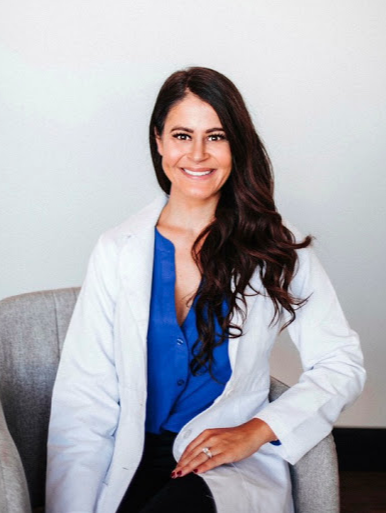The Importance of Good Oral Health During the Pandemic
Dr. Rana Sweis
Dentist/Owner of Smile Studio Dental, Central Park, Denver
The Covid-19 pandemic has affected all of our lives in one way or another. We have all experienced additional stress, change in routine, and feelings of anxiety. While these changes have impacted our lives dramatically, they are unfortunately also affecting the health of our teeth and gums. The American Dental Association (ADA) is tracking this new trend as the majority of dentists across the country, including our office right here in Central Park, are reporting seeing grinding, cracked teeth, inflamed gums, and cavities in their patients at an astonishing rate.
Dentists have known for a long time that our mouth is the portal to the rest of the body. This pandemic just reminded us how our mouths and the brain and the body are closely connected. During the pandemic people have been consciously and subconsciously affected. People have stress, anxiety and uncertainty. This causes complicated effects on the neurological and muscular functions of the body and that can translate into tooth problems.
So what exactly is happening?
Excess stress. Stress is one of the key culprits. Stress can cause us to unknowingly grind or clench our teeth which makes our teeth much more susceptible to cracking and more susceptible to cavities as the force of grinding weakens the enamel.
Routine change. People’s routines have changed drastically, social outings have declined, and people’s mental health has been affected. It’s easy to fall out of a brushing and flossing routine when your routine and life has suddenly changed.
Delays in dental care. The pandemic has meant delays in dental care for many families. Unfortunately, since teeth don’t heal on their own, problems just get worse and need even more treatment. Prevention is key. At your bi-annual dental exams, your dentist can diagnose small problems before they turn into large problems, and if patients have not come in for their routine cleanings and exams, we cannot prevent a small problem from turning into a larger, more costly problem.
As dentists, we understand that some patients may not feel comfortable coming into the dentist right now and we have to respect that. Since dental offices have re-opened, work has been done to reopen and perform our essential service safely. Patients should expect safety measures from COVID-19 screenings prior to your visit to changes at the dental chair itself. According to the ADA, less than 1% of dentists nationwide have had a confirmed COVID-19 diagnosis, and the research has shown any instances of transmission in dental offices are related to incidents that took place outside of the dental office.
What can we do to help our teeth and oral cavity?
- Control plaque! Good ole fashioned brushing twice a day for two minutes and flossing once a day to prevent cavities and reduce gum inflammation. If you haven’t already, make the switch to an electric toothbrush. Good dental hygiene might not be in the front of your mind in the middle of the pandemic but it’s very important to control the things we can right now, and we can control our oral hygiene habits!
- Just as important as oral hygiene is finding time to go to your dentist for a cleaning and checkup. Getting your teeth cleaned is extremely important for your immune system and fighting off infections. There is established scientific evidence that the immune response in your body is closely related to the health of your gums. A healthy mouth frees the body’s immune system to fight off other intruders.
- Stress control. I know, way easier said than done! Yoga and meditation are good sources of relaxation that can help you release tension in your jaw. If you feel yourself clenching, grinding, or waking up with a tight and sore jaw-you are most likely grinding/clenching your teeth. If you don’t already have a nightguard, make an appointment with your dentist to see if a nightguard is right for you.
- Your diet matters! What you eat is also very important. Avoid excess snacking and sugar-it’s a habit that is very easy to adopt while dealing with stress, boredom, and working from home. Sugary foods or drinks lead to acid in our mouths, which dissolves tooth enamel. The more often our teeth are bathed in these acids, the weaker and softer they become, and the easier it is for a cavity to form.
- Keep your toothbrush clean! If you suspect you have been exposed to the virus, replace your toothbrush. Toothbrushes can carry viruses. Regularly change your toothbrush head every 3 months or after you have been sick.



